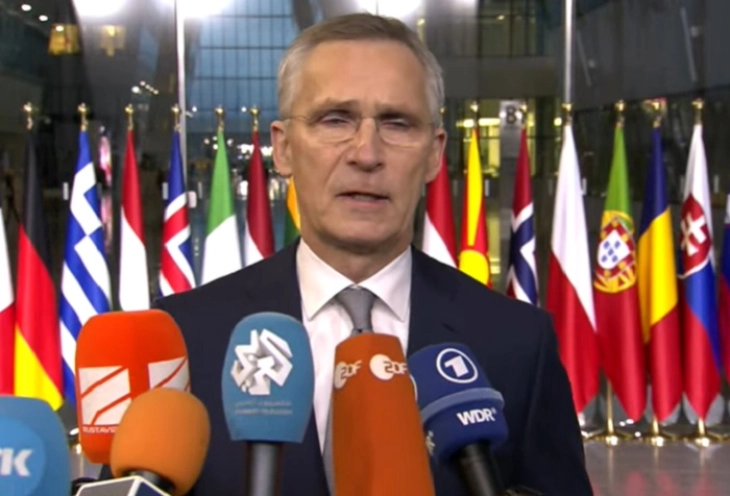NATO Secretary General Jens Stoltenberg cautioned on Thursday in Brussels that the delay in Washington’s approval of military aid for Ukraine is already having a noticeable impact. With reports of ammunition shortages in Ukraine, Stoltenberg urged the US Congress to pass the multibillion-dollar aid package, emphasizing that supporting Ukraine is an investment in the security of NATO member countries.
NATO defense ministers convened at alliance headquarters to discuss the commitment to allocate 2% of gross domestic product (GDP) for defense and address long-term support for Ukraine. UK Defence Minister Grant Shapps expressed ongoing concerns about Ukraine potentially running out of ammunition but assured that every effort is being made to assist in repelling the Russian invasion.
Finnish Minister of Defence Antti Häkkänen stressed the need for sustained support for Ukraine for as long as necessary, citing Finland’s decision to double ammunition production to facilitate deliveries.
Discussions at NATO headquarters were overshadowed by former US President Donald Trump’s recent comments, where he suggested encouraging Russia to act freely against NATO countries not meeting defense spending targets. Stoltenberg highlighted efforts to meet the 2% GDP commitment, citing an unprecedented 11% increase in defense spending across European allies and Canada.
Amid uncertainties about US security commitments and support for Ukraine, German Defence Minister Boris Pistorius emphasized the need for Europe to enhance its own defense capabilities, regardless of the leadership in the White House after January 25.
Since 2006, NATO members have agreed to allocate 2% of their GDP to defense, but only a few have consistently met this target, causing frustration within the alliance, particularly from the United States. In 2014, NATO pledged to halt defense budget cuts following the Russian invasion of Crimea, with members committing to spending a minimum of 2% of GDP on defense nine years later, after the conflict expanded to the rest of Ukraine. Additionally, Sweden’s potential accession to NATO, currently delayed by the Hungarian parliament’s failure to ratify the decision, remains on the alliance’s agenda.





Comments are closed for this post.